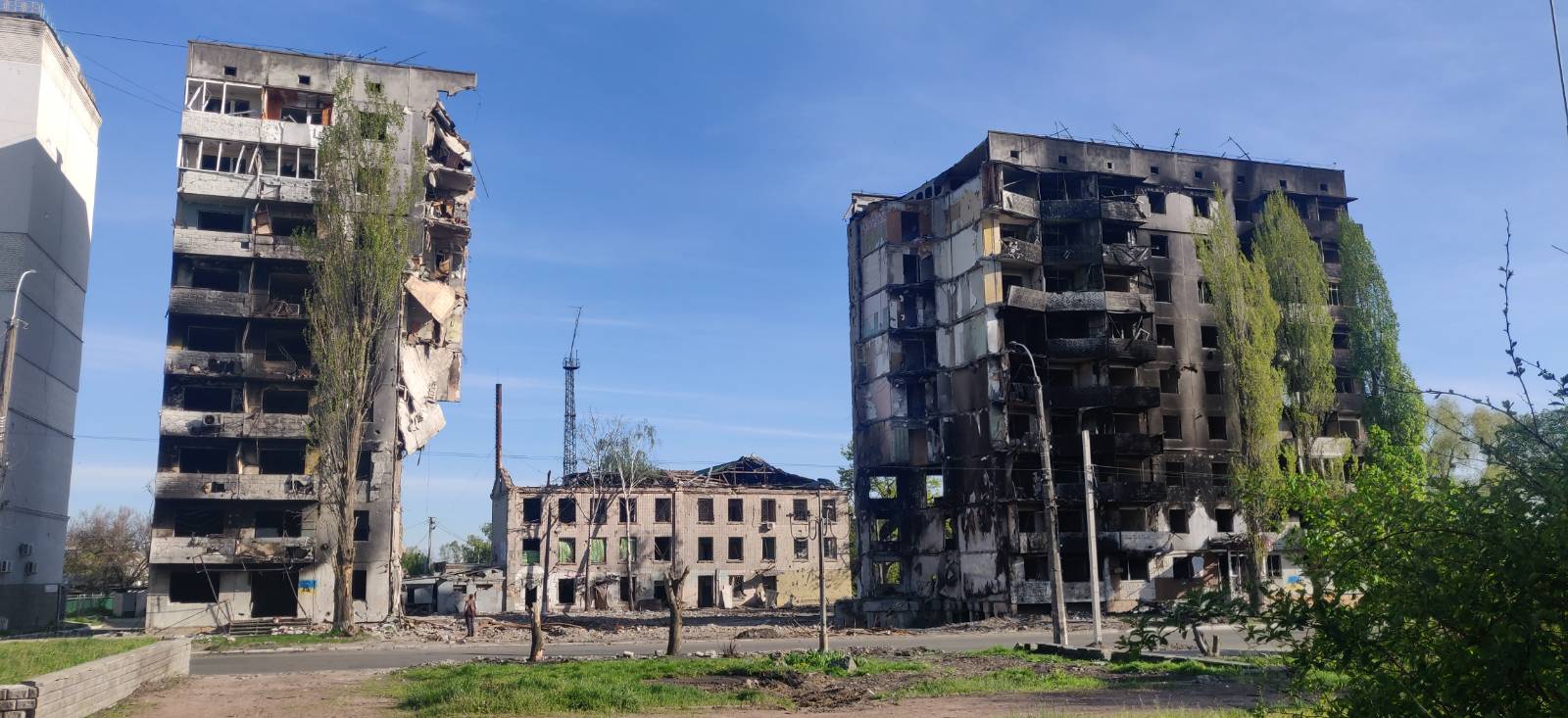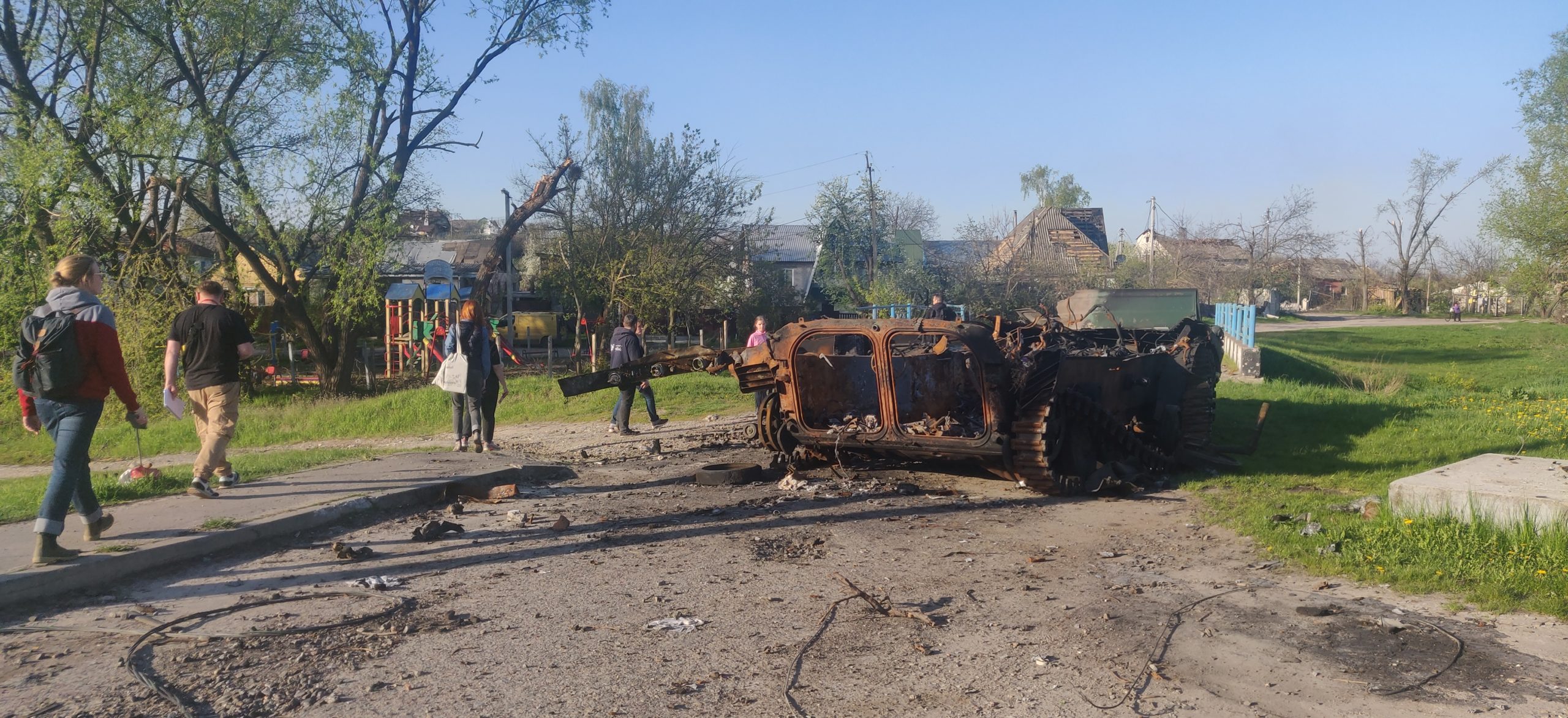Content
International monitoring mission to Ukraine: How Russian invasion influences different regions
Experts from DRA e.V. (Germany) and Vostok SOS (Ukraine) along with other partners from the civil society of Ukraine, France and Germany conducted a monitoring mission in Western and North-Eastern Ukraine.
The international team, strengthened by the local experts, visited the liberated settlements of Chernihiv, Sumy and Kyiv regions as well as communities of the Zakarpattia region that shelters many internally displaced people (IDP).
Zakarpattia region
Over 5 million Ukrainians had to flee abroad because of the Russian invasion, and more than 7 million were displaced within their own country. In Ukraine’s westernmost region of Zakarpattia, more than one in four people are IDPs. About two-thirds of these people from places like Mariupol, Kramatorsk or Kharkiv rent their own accommodation, but about a third are staying in collective housing. Not all of such places were designed to house people for a long time.
There is also a lack of systematic social and psychological support, which is important for people who are often traumatised by their experiences.
According to the mission expert Julia Shukan, local communities are doing a great job, helping internally displaced people, but it isn’t an easy task, due to the large numbers (over 400 000 IDPs) in the Zakarpattia region, especially taking into account that IDPs aren’t equally spread throughout the region.
Expert Tim Bohse stated that the region needs help in scaling up temporary and permanent housing for the IDPs, given the fact that schools and kindergartens serving as shelters will be used for the primary purpose soon again.
Humanitarian aid needs to be delivered on a larger scale too, but has been significantly reduced recently, because the international community refocused efforts on the regions more directly affected by the Russian invasion.
Liberated territories
The international monitoring mission visited liberated areas of Sumy, Chernihiv and Kyiv regions of Ukraine.
These territories were freed from Russian occupation over a month ago, but they still bear distinct marks of the fighting and signs of the war crimes committed by the Russian army: devastated civilian neighbourhoods, destroyed houses, hospitals, and schools where Russian soldiers and tanks were stationed.

For example, in the village of Yahidne in the Chernihiv region, 350 people were detained by the Russian military in the basement of a local school for almost a month, while tanks were stationed around the building. Many of the civilians were women, children and elderly. They weren’t allowed to leave, didn’t have sufficient access to water, or other necessities. The soldiers fed them once, or twice a day. 13 people, mostly older persons, did not survive these conditions.
Expert Evhen Vasyliev says that even after Russians left, people remained in the basement for another day as they were too afraid to leave and till now they are terrified that the Russians may return.

The experts have also visited Okhtyrka, Trostyanets in the Sumy region and Andriivka, Borodyanka in the Kyiv region. All – places of numerous Russian war crimes against civilian people and infrastructure committed according to similar patterns.
After meetings with regional Prosecutor’s offices in the Chernihiv and Sumy oblasts, expert Tim Bohse stressed the importance of the ongoing Ukrainian investigation efforts to document every such crime and the urgent need of direct support from European experts and investigators to their Ukrainian colleagues due to the scale of the committed crimes.
___
Members of the mission have seen the situation in Ukraine – all the destruction, suffering and war crimes, brought here by Russia.
The team will prepare a report based on their findings, as well as recommendations to the European authorities and civil society. They will also become advocates for targeted support of Ukraine in their countries and the whole European Union, based on the needs on the ground.
Mission experts:
– Tim Bohse, DRA e.V. (Germany)
– Imke Hansen, Libereco – Partnership for Human Rights (Germany)
– Ioulia Shukan, sociologist, University of Paris Nanterre (France)
– Yulia Krasilnykova, Executive Director of the Vostok SOS Charitable Foundation (Ukraine)
– Evhen Vasyliev, coordinator of the monitoring component of the Vostok SOS Charitable Foundation (Ukraine)
